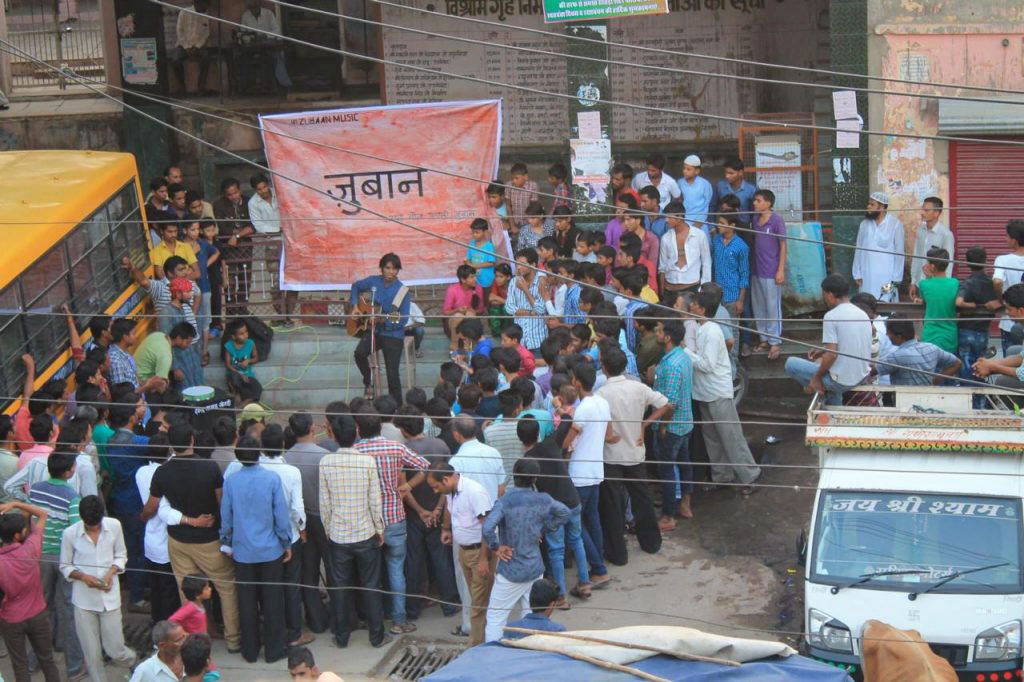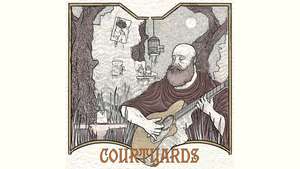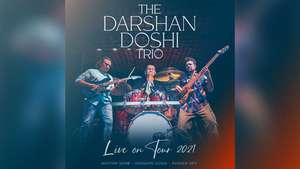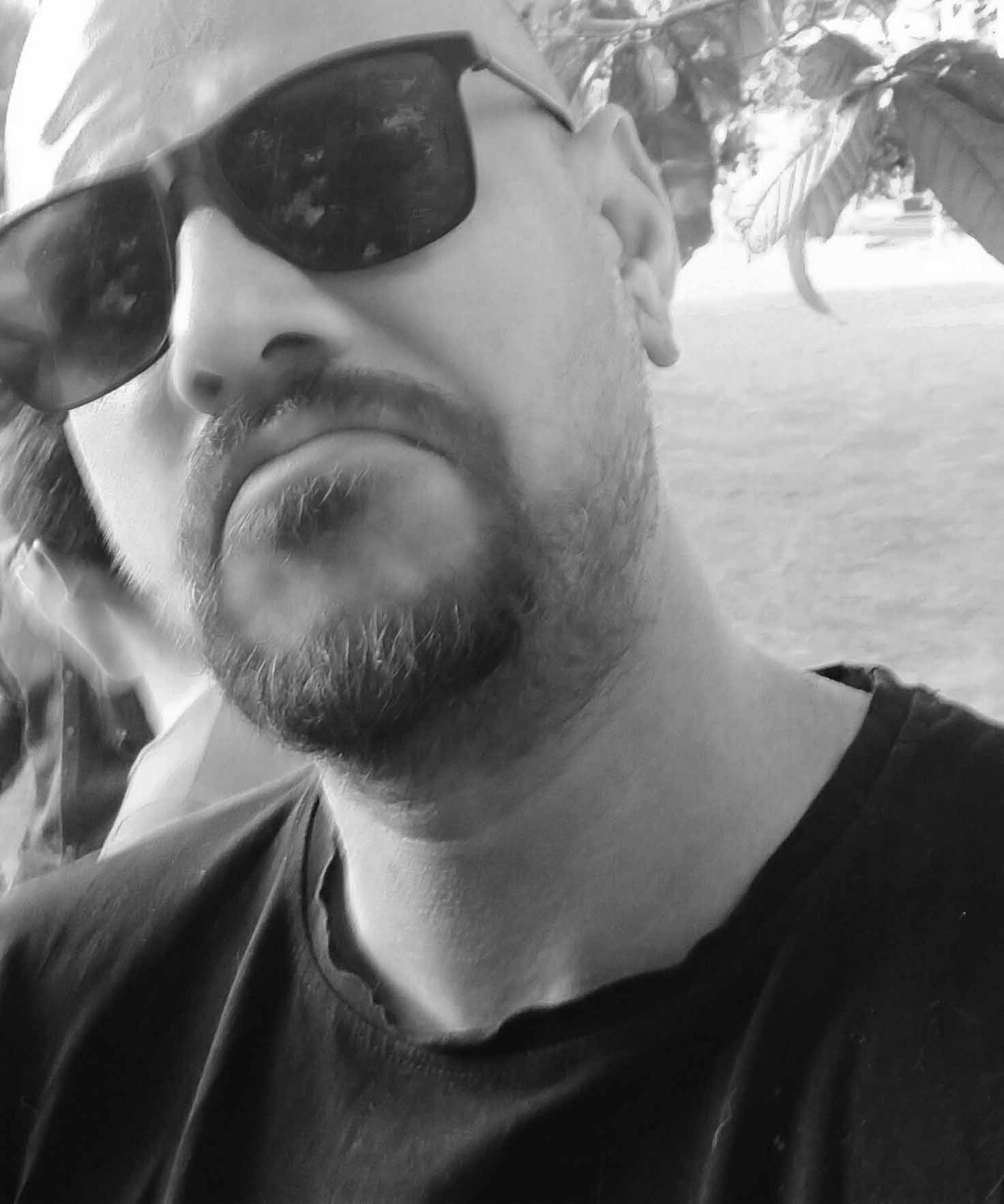
Once an Engineer, Always a Musician – An Interview with Kavish Seth
Today we bring you an exclusive interview with Kavish Seth, poet, musician and polymath! Ceteris Paribus, Kavish Seth is also the inventor of the ‘Noori’, a 14 stringed instrument shaped like a guitar, but with a wooden frame covered in goatskin to produce percussive sounds like those of a djembe. A true blend of east and west.
Part 1
So, Kavish, What’s your story?
Well, I began to learn the tabla at the age of 12 but even then I knew that it wasn’t something one could turn into a career. Of course, back then I wanted to be a scientist which eventually led me to IIT, which I know is the mother of all clichés. During the vacations preceding this, I began to learn the guitar, which for some reason made my father very happy. This reconnection with music had a profound effect on my outlook on life. I had never imagined an experience so exalting. Up till now we were studying about things that ‘mattered in the world’, laws of thermodynamics, calculus and more. In all of that, our thoughts and emotions got little space to be expressed /observed/ studied, the space they got was the last page of the notebook to be precise. With music, I encountered myself, and that experience was divine. When we are young and naive, we imagine careers based on everything we have heard from others. Children always want to be something out of reach to them – like an astronaut. But as we grow, we gravitate towards what comes to us naturally. The path is just as tough, but what really makes all the difference is human inclination. For me, it was music, in all its divine glory.
During my IIT days, I found many classmates who had a similar inclination towards music. Our natural calling led us to form a band. Of course, one has to fight that temptation of a guaranteed career bestowed upon those with engineering degrees. Rejecting the perks of a higher and more consistent pay scale can be daunting, to some borderline insanity. In my mind, continuing as a musician would clobber any chances I had to attain of what the world would define as ‘stability’. The immense power that music had over me was far greater than anything else I had encountered and in order to focus on academics, it would mean that I would have to shut out any thoughts connected to music. I tried to do so but, as life would have it, I couldn’t. The storm which stirred the various dichotomies inside my head found its release in a protest poem I wrote during an exam when I should really have been answering the questions in front of me. The poem was aptly titled, “Who are you to tell me what I should do and what I shouldn’t?”
I was in a lot of trouble for this (mis) step, for what was considered IIT-blasphemy. The dean reprimanded me and referred me to a counsellor, who promptly wrote to my parents informing them of my loss of interest in studies. I was advised to take a year off and return if and when I decided that IIT to be my sole focus. This period in my life was torrential, to say the least.
While I was questioning my motives and contributions to the field I was preparing to enter, the one question that lurked in my mind was – was it making any difference? To me? To the field? It was also during this period that my father passed away.
Upon resuming my studies, I felt I had to give it my best. I gained an innovative perspective at this turning point, which led me to make better use of the resources at my disposal. This opened many doors and I was also given a boost by those around me.
My fourth year at IIT shaped my worldview, leading me to develop an interest in politics and the political landscape in India. In 2013, I moved to New Delhi to work for Aam Aadmi Party, which was still in its inception stages then. I was part of a movement that made me realise how small our idea of India was. India is a vast and diverse country and for an independent artist to succeed, exposure to as much of it as possible is a must. Artists must travel and take in all that India has to offer.
I returned to IIT once again to finish off what I had started in the best way I could, while also attempting to release two original songs.
Can you tell us a little more about the movement you spawned – Zubaan?
My thoughts and analyses of India and it’s cruciality in shaping artists gave birth to Zubaan – a movement that aimed to bring artists from various backgrounds together. A movement that would help artists refine their skills through the very act of them helping one another. It didn’t require any resources more than the ones the artists themselves possessed. The unique difference between an artist and virtually anyone else is that the artist will fight a great fight for his or her art. An artist will also suffer on behalf of his or her art. This very resilience would set the foundation of Zubaan – a movement which didn’t require a place and didn’t require comfort or luxury. In fact, the lack of these would create its very essence. Artists were willing to sleep on the streets if need be, and this held the true power of this movement. Our first ever concert was held in a village called Barpar in Uttar Pradesh.
While Zubaan was taking shape, so was I. It helped me make music in the way I wanted to. By bringing people together. By connecting with them. The way I saw it, the best bands weren’t simply those that comprised of talented individuals, but those that comprised of the very best of friends playing together.
I wanted to play in rural areas, villages and outskirts of cities, rather than within them. I feel that cities can be a distraction. Artists in cities often suffer from several setbacks that affect their music. Firstly, when it comes to lifestyle, they spend a lot more time and worry about their living expenses rather than on their music. Secondly, they lack any original inspiration. They aren’t able to take life in the way one can when exposed to the vastness of scapes, sounds and cultures in small-town and rural India. It is only here that one can develop or find their own unique voice, rather than the imitations of imitations that one would find in cities.
My dream for Zubaan was then to establish a means for artistic expression, through a variety of experiences. To carve a name from them.
Speaking of towns, cities and rural areas, you seem to have performed in a plethora of these. What have been your observations with reference to their subtle differences or maybe even the stark ones?
Tier-two towns are my favourite because the purchasing power of people is comparable to the big cities. However the main difference, and what makes them special, is that people here are far more immersed in their local cultures when compared to cities. Plus tier-two towns are more spacious and affordable. While bigger cities have the power to take one to the next level in terms of exposure, it is here where one can innovate and develop that unique voice.
Many Indie artists have side hustles in order to make money to survive. Do you or have you ever kept your music on hold in order to make some money and come back to it later? Or do you rough it out and stick to music come what may?
I wouldn’t really call them side hustles, but yes, many artists take on freelance work to stay afloat while they work on their music. Personal savings are bound to run out sooner or later. I generally don’t take on side jobs that aren’t in some way connected to music. Side jobs must help me earn while still maintaining my boundaries within the realm of what I want to do. Just like in the case of many writers, who along with their own original works, take on gigs of a more commercial nature. This helps keep the creative machines well-oiled and also ensures that a writer never stops writing.
In fact, in a way, one could call Zubaan my side project. I allotted most of my scholarship funds to Zubaan and we managed to stay afloat for a year and a half with the help of these funds along with the money we received from sponsorships and gigs. When the money eventually ran out, I began doing my own solo gigs to earn additionally. I also reduced my personal monthly expenditure drastically.
I thought if I could organise small gigs at home where small groups of people would pay a certain amount to hear me, this would bring in some income. Through connections I had made in my life, especially during my college days, the Zubaan movement and my stint with politics, I was able to put together a structure that would help me earn what I needed. It worked well but it also meant that I had to put Zubaan on a temporary hold, even though we fed off each other. After all, Zubaan and its artists had done gigs in over 47 towns and cities across the country.
Through my life experiences, I’ve realised that if one sticks to music, the road is going to be long and rough, but one will eventually reach one’s destined goal. Plus, the internet has given artists the power to reach wide audiences, they otherwise wouldn’t have been able to. There are a great many marketing resources and platforms at one’s disposal and if one can tap into these effectively, there is no further hindrance in the path to success.
——-
Watch out for the exciting second part of this interview.











Comments